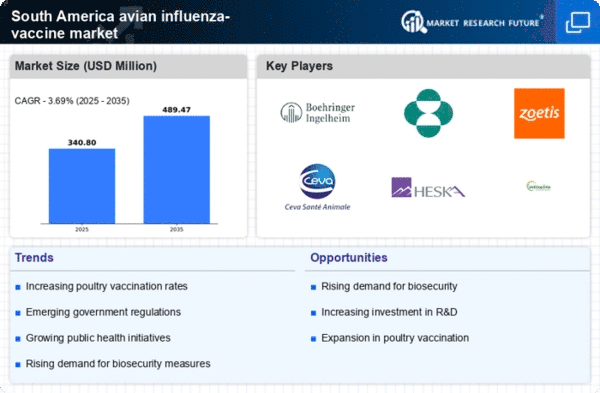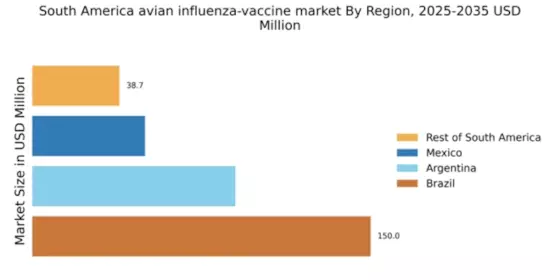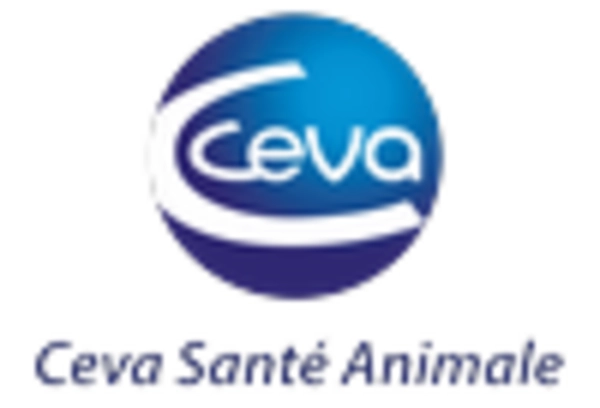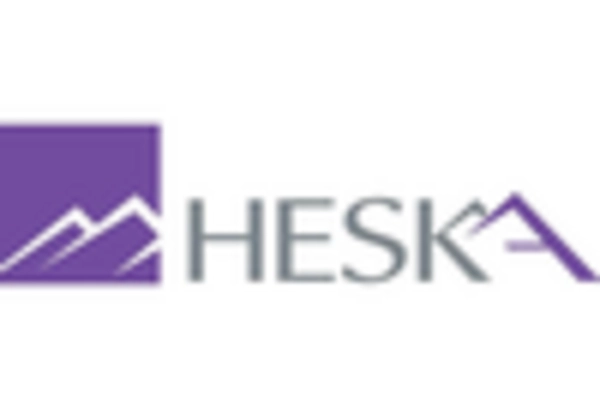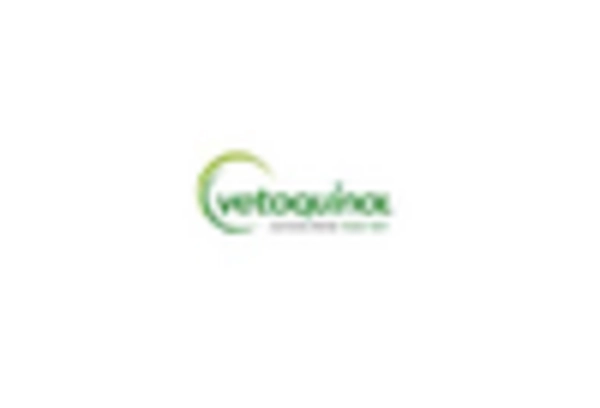Advancements in Vaccine Technology
The avian influenza-vaccine market in South America is influenced by advancements in vaccine technology that enhance efficacy and safety. Recent developments in recombinant vaccines and adjuvants have improved the immune response in poultry, leading to better protection against avian influenza. In 2025, a new vaccine formulation was introduced in Brazil, demonstrating a 30% increase in efficacy compared to traditional vaccines. The avian influenza-vaccine market is poised for growth as these technological innovations become more widely adopted. As producers seek effective solutions to combat avian influenza, the demand for advanced vaccines is expected to rise, driving market expansion.
Rising Poultry Production and Consumption
The avian influenza-vaccine market in South America is propelled by the rising demand for poultry products. With an annual growth rate of approximately 4% in poultry production, countries like Brazil and Argentina are expanding their poultry industries to meet both domestic and international demand. This increase in production necessitates effective vaccination strategies to prevent disease outbreaks. The avian influenza-vaccine market is likely to experience growth as producers prioritize vaccination to ensure the health of their flocks. As consumption patterns shift towards more poultry products, the need for robust vaccination programs becomes increasingly critical.
Regulatory Support for Vaccination Programs
The avian influenza-vaccine market in South America benefits from robust regulatory frameworks that support vaccination initiatives. Governments in countries like Brazil and Argentina have established guidelines to facilitate vaccine distribution and administration. This regulatory support is crucial, as it ensures that vaccines are accessible to poultry farmers, thereby enhancing biosecurity measures. In 2024, Brazil reported a 15% increase in vaccination coverage among poultry, attributed to these supportive policies. The avian influenza-vaccine market is likely to see further growth as regulations evolve to address emerging strains of the virus, ensuring that vaccination remains a priority in poultry health management.
Economic Impact of Avian Influenza Outbreaks
The avian influenza-vaccine market in South America is significantly influenced by the economic repercussions of avian influenza outbreaks. In 2023, an outbreak in Chile led to losses exceeding $50 million in the poultry sector, highlighting the financial stakes involved. As a result, poultry producers are increasingly investing in vaccines to mitigate potential losses. The avian influenza-vaccine market is expected to expand as farmers recognize the cost-effectiveness of vaccination compared to the financial burden of an outbreak. This economic rationale drives demand for vaccines, fostering a proactive approach to disease management in the region.
Public Health Concerns and Biosecurity Measures
The avian influenza-vaccine market in South America is shaped by heightened public health concerns regarding zoonotic diseases. The potential for avian influenza to affect human health has prompted governments to implement stringent biosecurity measures in poultry farming. In 2025, public health campaigns in Argentina emphasized the importance of vaccination in preventing disease transmission. The avian influenza-vaccine market is likely to benefit from these initiatives, as increased awareness leads to greater adoption of vaccination practices among poultry farmers. This focus on biosecurity not only protects public health but also enhances the overall resilience of the poultry sector.


